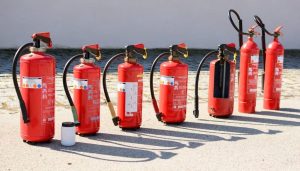Medical waste management is the process of planning, implementing, and maintaining medical waste handling and disposal in a safe and environmentally friendly manner. Solid medical waste is disposed of primarily in landfills but is also incinerated or converted to energy. Infectious waste is segregated from other waste streams and is most commonly incinerated but may also be sterilized or rendered harmless by chemical treatment.
Medical waste management is regulated by law in most countries. Generators of medical waste must obtain a permit to comply with legal requirements and understand the regulatory framework they must operate within. Therefore, the proper organization of a medical waste program is a fundamental element in ensuring a safe and effective medical waste program. The organization of a medical waste program is the responsibility of the medical waste management personnel, including planning, implementation, and maintenance.

The essential components of a medical waste program are planning, implementation, maintenance, and monitoring.
Planning is the process of identifying the jurisdiction’s gestion de residuos sanitarios needs and determining the required legal and regulatory framework. This includes identifying waste management needs concerning industry sectors, federal/state/local government priorities, and broader societal objectives. In addition, the plan may include details of how enforceable requirements will be developed and the anticipated time frame for regulatory development.
Implementation is the process of developing the details of how medical waste management will be put in place. This process includes developing and implementing various policies and procedures to support the program, procuring equipment, and developing workforce skills. The implementation may also include methods for training organizations to manage their medical waste safely.
Maintenance is the process of maintaining the organization’s program
Monitoring is the process of assessing the state of the organization’s program. This includes reviewing operations to identify areas for improvement and evaluating risks to health and safety. Monitoring may consist of documentation of all medical waste produced by the organization and examples of handling it concerning relevant regulations. Where relevant, monitoring should also include the quantity of medical waste recycled or processed for energy.
The success of a waste program is primarily dependent on the workforce
All personnel involved in managing medical waste are directly responsible for its safe handling and disposal, whether they are employees or service providers. This includes producers of medical waste, employees who handle medical waste, and employees who must inspect or monitor the program.
In all cases, personnel should be trained in the organization’s program, including identifying risks and hazards of handling medical waste. Employees should be aware of their own responsibilities in the organization and should have a clear understanding of the regulatory framework.
In addition to being responsible for their own actions, all personnel must also adhere to safety requirements when handling medical waste. For example, items such as sharps containers and refrigerators must be marked with the biohazard/infectious waste symbol. Personnel must ensure that any equipment not marked with this symbol is appropriately decontaminated before disposal. Furthermore, personnel must adhere to the organization’s procedures and protocols.
Producers of medical waste should also be aware of their duties under the organization’s program. For example, they should adhere to the organization’s procedures and protocols when handling waste and ensure that their workers understand these.
In addition to the producer, most medical waste must be managed by employees who must inspect or monitor the program. This could refer to an employee tasked with liaising with the organization’s medical waste management program or a staff member who has a direct duty to inspect or maintain the program. These individuals should also be familiar with any safety requirements.




